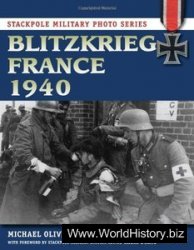In January 1632 Thomas, Viscount Wentworth was appointed lord deputy in Ireland. Wentworth was the instrument whereby the policy of "thorough," which the king sought to apply throughout his realm, was to be enforced in Ireland. "Thorough" was a policy that sought to employ effective administration and so to enable the king and his government to operate without having to go to parliament for resources to enforce his will and implement his programs. One aspect of "thorough" dealt with church policy. Through William Laud, the archbishop of Canterbury, he sought to enforce the more orthodox high church ritual and doctrine and inhibit the growing Calvinist or low church influences. A high church theological perspective was usually supportive of monarchical prerogative. Significantly, many of the New English in Ireland were of low church attitudes in addition to the great number of outright Presbyterians in Ulster.
Wentworth's strategy for Ireland was to ensure that the island would provide a return for the king considerably in excess of the cost to the monarchy in maintaining power there. In addition, he sought to guarantee that neither the Gaelic Irish, the Old English, nor the New English would be able to seriously impede royal governance. In doing so, Wentworth also acted to guarantee for himself an income that made him one of the richest men in the kingdom. Over the Catholics, especially the Old English Catholics, he held the threat of enforcing
The Recusancy Laws, which could be avoided by making substantial contributions to the exchequer. He imposed the orthodox Thirty-nine Articles on the Church of Ireland and imposed an Act of Uniformity whereby church property or income could be recovered from dissenting clergy.
He summoned a parliament in 1634 in which the creation of new peerages and the presence of their bishops gave a majority to the Protestants in the House of Lords as well as in the Commons. Catholics were induced to make further subsidies to the government by the promise of making the "Graces" statutory. In fact, the concessions gained were minor, such as allowing limited practice of law. On the other hand, rather than confirm land holdings of 60 years, Wentworth secured parliamentary acquiescence in establishing a Commission for Defective Titles whereby more holdings could be taken from Gaelic, Old English, and even New English for the advantage of the Crown. With that accomplished, he dissolved parliament in 1635, hoping, as the king had been able to do in England, to rule without it. Wentworth had no theological hostility toward Catholics, whom he realized were temperamentally disposed toward monarchy, and he granted them general tolerance to practice their religion. But they remained disqualified from public office and they were denied real security of land tenure.
In many ways, Wentworth's administration in Ireland was remarkable, measured by the revenues he obtained, often by intimidation of juries or threats of attaining land with possibly defective titles. He encouraged commerce and industry in the towns, built up merchant shipping, and aimed at further colonization by the English. However, events outside of Ireland would begin a process that would energize all those whom he had antagonized in Ireland, leading to his removal from the scene.
In 1638 Charles, encouraged by Archbishop Laud, sought to extend the policy of religious uniformity to his other kingdom, Scotland. Rather than accept the high church orthodoxy in doctrine and ritual the Scots took the famous Solemn Oath and Covenant to resist violently the imposition of prelacy on them. Eventually war ensued between the two kingdoms. Significantly, Wentworth had begun to implement a similar policy of religious conformity against the many Scots in Ulster, including asking all males over 16 years of age to take an oath of loyalty. Then early in 1640 Charles summoned his faithful and effective servant in Ireland to come to London to advise him of the situation. He was raised to the title of the earl of Stafford and given the higher title of Lord Lieutenant of Ireland. Wentworth had already called an Irish parliament, at which he asked for subsidies with which to raise an army of 9,000. The parliament had complied with his request by the time he returned to Ireland in March. The following month, he returned to England where he hoped similar acquiescence would come from a parliament that was being summoned for the first time since 1629. The parliament refused to meet the king's request for assistance against the Scots. The noncompliant parliament, known in history as the "Short Parliament," was dissolved within three weeks.
That summer the Scots went on the offensive, defeating a royal army at Newcastle, forcing the king to summon yet another parliament. This parliament, historically known as the "Long Parliament," some of whose members
Were in league with the Scots, proved just as obstinate, concerning itself with redress of grievances before tending to the royal requests for subsidy. The members asserted remarkable control over the monarch, his officials, and even his family, and they began the process that would result in civil war, the end of which would see the execution of the king and more than a decade of republican rule in England, Scotland, and Ireland. One issue that particularly excited the parliament was suspicion that Wentworth was in connivance with Irish Catholics in support of the monarchy. There was a large number of Catholics among the army of 9,000 raised by the subsidies of the Irish parliament. Many in the English parliament feared that this army might be employed in England. The ouster of Stafford became their primary objective. The Irish parliament, meeting in January 1641, also issued a bill of particulars against the man. However, there was never formal impeachment; instead, the parliament of England passed a bill of attainder against him and secured his execution in May 1641.




 World History
World History









